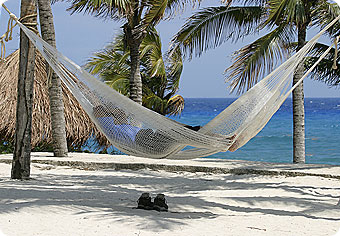FEATURE ARTICLE -
Uncategorised
Queensland barristers are now safely ensconced in their chambers following the Christmas period. Many of us enjoyed a holiday. For most it was too short; for some too long.
A lengthy and recuperative holiday from practice, paradoxically, can sometimes be inimical to practice upon resumption. A lengthy break often retards efficient dispatch when back at work; one can still feel the sand between one’s toes.
Counsel, like a number of professions and callings, do work in a pressured environment. The cab rank rule dictates we cannot pick and choose our briefs. Acting for the occasional scoundrel and the desperado founds a mountain of tension (and that is just on the commercial list!).
As barristers are self-employed, taking holidays from work, and taking apt recreational time during the work week and at weekends, is paramount. To do otherwise works deleteriously not only to the barrister’s personal health and fitness (mental and physical) but also to the maintenance of his or her marriage (or other union), family life and social enjoyment.
Counsel, generally, are well remunerated. Partly for that reason, but saliently in expectation of professionalism, instructing solicitors and clients justifiably anticipate we will always perform at 100%. They eschew any gripe apropos how “busy” or “tired” we are. Adequate rest and leave enhance our meeting these proper expectations.
 Self-employment obviates delegation (except to the extent that occurs between senior and junior and between barrister and solicitor). In consequence many of us tend to work excessively long hours and plan poorly for recreational and holiday time. The profession needs to redress this.
Self-employment obviates delegation (except to the extent that occurs between senior and junior and between barrister and solicitor). In consequence many of us tend to work excessively long hours and plan poorly for recreational and holiday time. The profession needs to redress this.
Not for one moment am I suggesting we all need be routinely planning travel to some far flung destination. Different folks, different strokes. Staying home with the spouse, the kids and the dog may be as restful, if not more so than an interstate or overseas jaunt.
Informed by these matters, my experience in 25 years at the Bar yields the following golden rules about holidays, and generally time off work.
First, only work six days a week.
Almost all of us work at least five reasonably long days, both at work or at home after the evening meal. With the occasional necessary exception, never work more than six days a week. Saturday is an important day to spend with your partner (and your children if you have them) and/or your friends, or just by yourself (eg, reading, golf).
Secondly, drink alcohol regularly but not copiously.
With respect to the teetotallers at the Bar (and I only know one, and he is more fun than all the others who drink), to have at least one or two (I always lose count) alcoholic drinks at home at night serves to melt work and domestic tension. My wife and I practise marriage by the mantra: “The couple that drinks together stays together”. Excessive consumption is a problem; there has been many an alcoholic barrister.
Thirdly, diarise holidays.
Cross holidays out of your diary just like you cross out time to do a case or undertake some paper work. Be zealous in maintaining such work unavailability irrespective of what happens. Another brief will always come along.
Fourthly, inform solicitors of your holidays.
When speaking periodically to your briefing solicitors, or if there is a significant gap between conversations then by short letter, timeously advise them you will be taking holidays, and thereby unavailable during a particular period. They cannot sensibly, and rarely will complain if fully informed. If they do they are not worth having. Most will see it as proper and admirable allocation of your time.
Fifthly, no briefs on holidays.
Inexorably several briefs remain unfinished before holidays, or a trial soon thereafter behoves preparation. Never take a brief (or any legal journal) with you on holidays. Not only is the study of it unlikely to be productive, but it will retard your relaxation and social productivity.
Sixthly , no work contact on holidays.
Do not take or make business calls on holidays. To do so will only disrupt your relaxation time and irritate your partner or companions. Tell any caller, and bluntly, that you are on holidays and thereby you are not in a position to respond.
Seventhly, immediately plan your next holiday or time off.
If you arrive back in chambers in mid-January, strike out a week at Easter. At the end of Easter strike out a week in September, etc. However long the lead time to, or work intensity until your next holiday, your productivity will thereby be enhanced and frustration diminished if you are mindful that your next holiday has been “locked and loaded”.
 Candidly, I have breached each of these rules from time to time. That does not detract from their efficacy. Each ought be borne steadily in mind. Act now! You are a long time dead or divorced.
Candidly, I have breached each of these rules from time to time. That does not detract from their efficacy. Each ought be borne steadily in mind. Act now! You are a long time dead or divorced.
My word or phrase of the week: “Parkinson’s Law – the law that dictates that ‘work expands so as to fill the time available for its completion’. The term was first formulated by the English historian and author Cyril Northcote Parkinson (1909-1993) in his eponymous 1957 text [source: Chambers’ Dictionary of Eponyms – 2004, pg 222].
Richard Douglas SC
Discuss this article on the Hearsay Forum


 Self-employment obviates delegation (except to the extent that occurs between senior and junior and between barrister and solicitor). In consequence many of us tend to work excessively long hours and plan poorly for recreational and holiday time. The profession needs to redress this.
Self-employment obviates delegation (except to the extent that occurs between senior and junior and between barrister and solicitor). In consequence many of us tend to work excessively long hours and plan poorly for recreational and holiday time. The profession needs to redress this.  Candidly, I have breached each of these rules from time to time. That does not detract from their efficacy. Each ought be borne steadily in mind. Act now! You are a long time dead or divorced.
Candidly, I have breached each of these rules from time to time. That does not detract from their efficacy. Each ought be borne steadily in mind. Act now! You are a long time dead or divorced.